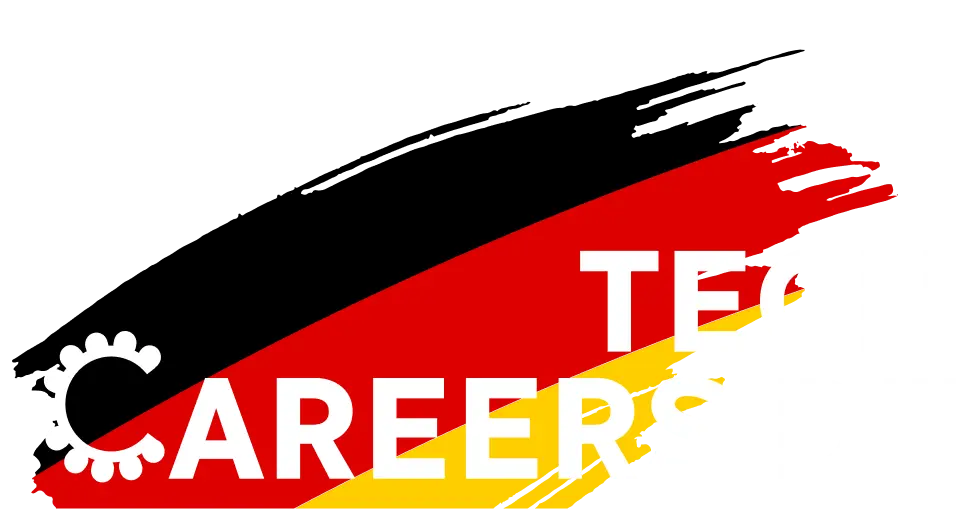Overview of the Java Developer Jobs in Germany
Java developers are in high demand across Germany, with opportunities spanning various industries such as finance, e-commerce, automotive, and telecommunications. Companies like Deutsche Bank, SAP, and BMW frequently seek Java professionals for both backend and full-stack roles.
Java Developer Jobs Market Landscape
Responsibilities of Java Developer
Software Development:
- Write, test, and maintain Java code for applications and systems.
- Develop new features and functionalities based on project requirements.
System Design:
- Participate in the design and architecture of software systems.
- Create technical specifications and documentation.
Code Review and Testing:
- Conduct code reviews to ensure code quality and standards.
- Develop and execute unit tests and integration tests.
Debugging and Troubleshooting:
- Identify and resolve software bugs and issues.
- Optimize performance and scalability of applications.
Collaboration:
- Work closely with other developers, designers, and stakeholders.
- Participate in agile/scrum meetings and sprints.
Continuous Improvement:
- Stay updated with the latest industry trends and technologies.
- Implement best practices in software development.
Database Management:
- Design and manage databases, ensuring efficient data storage and retrieval.
Deployment and Maintenance:
- Deploy applications and ensure their proper functioning in production environments.
- Provide ongoing maintenance and support for existing applications.
Skills Required for Java Developer in Germany
- Java Programming: Proficiency in Java SE and Java EE.
- Frameworks: Experience with Spring, Hibernate, and Struts.
- Databases: Knowledge of SQL and NoSQL databases.
- Tools: Familiarity with Maven, Jenkins, Git, and Eclipse or IntelliJ IDEA.
- Web Technologies: Understanding of HTML, CSS, JavaScript, and JSP/Servlets.
- APIs: Experience with RESTful and SOAP web services.
- Testing: Skills in JUnit and Mockito for testing.
- Problem-Solving: Strong analytical and problem-solving abilities.
- Communication: Effective communication skills for collaboration.
- Teamwork: Ability to work in agile teams and collaborate with cross-functional teams.
Java Developer Vacancies in Large German Companies
- Siemens: Siemens regularly recruits Java developers for roles in software engineering, focusing on industrial automation and smart infrastructure.
SAP: SAP, a global leader in enterprise software, offers numerous positions for Java developers, particularly in developing and maintaining their ERP systems.
Deutsche Bank: Deutsche Bank seeks Java developers for various fintech projects, enhancing their digital banking platforms and financial services.
BMW: BMW hires Java developers for roles in automotive software development, including vehicle connectivity and infotainment systems.
Allianz: Allianz, a major player in the insurance sector, offers opportunities for Java developers in developing their internal applications and customer-facing platforms.
Top German Cities to Find Java Developer Jobs
- Overview: Berlin is a major tech hub with a vibrant startup ecosystem and numerous established tech companies.
- Opportunities: Companies like Zalando, Delivery Hero, and various fintech startups offer many positions for Java developers.
- Overview: Munich is home to many large corporations and has a strong industrial base.
- Opportunities: Major companies like BMW, Siemens, and Allianz are headquartered here, providing ample job opportunities.
- Overview: Frankfurt is a key financial center in Germany.
- Opportunities: Financial institutions like Deutsche Bank and Commerzbank frequently seek Java developers for fintech projects and backend development.
These cities provide numerous tech jobs in Germany and offer a high quality of life, making them attractive destinations for Java developers.
Java Developer Salary in Germany
The salary for Java developers in Germany varies based on experience, location, and company size:
- Average Salary: Java developers earn between €55,000 and €75,000 annually.
- Entry-Level: Junior developers typically earn from €45,000 to €55,000 per year.
- Mid-Level: Developers with a few years of experience earn around €55,000 to €70,000.
- Senior-Level: Senior developers can earn between €70,000 and €90,000 or more annually.
- Top Cities: Salaries are generally higher in major cities like Berlin, Munich, and Frankfurt due to higher living costs and concentration of tech companies.
These figures can vary depending on the specific industry and the demand for Java skills in different sectors.
Challenges and Opportunities in the Java Developer Job Market
Challenges
Evolving Technologies:
- Rapid advancements in tech require continuous learning and adaptation.
- Keeping up with new frameworks, tools, and languages is essential.
High Competition:
- The popularity of Java means a competitive job market, particularly for desirable positions in top companies.
- Differentiating oneself through specialized skills or experience can be challenging.
Legacy Systems:
- Many companies use legacy Java systems that require maintenance and updates.
- Working with outdated code and technologies can be time-consuming and complex.
Performance Optimization:
- Ensuring Java applications run efficiently and effectively can be difficult.
- Requires a deep understanding of performance tuning and resource management.
Opportunities
High Demand:
- Java remains one of the most widely used programming languages.
- Strong demand across various industries, including finance, e-commerce, and enterprise solutions.
Versatility:
- Java’s versatility allows developers to work on a wide range of projects, from mobile apps (Android) to large-scale enterprise systems.
- Opportunities to branch into related fields like big data, AI, and cloud computing.
Career Growth:
- Abundant opportunities for advancement into senior roles, technical leadership, or architecture positions.
- Potential to transition into project management or product development roles.
Remote Work:
- Increasing acceptance of remote work offers more flexibility and job opportunities.
- Ability to work for international companies without relocating.
By navigating these challenges and leveraging the opportunities, Java developers can build successful and fulfilling careers in the evolving job market.
Tips for Finding a Java Developer Jobs in Germany
Update Your Resume and LinkedIn Profile:
- Highlight your Java skills, relevant projects, and experience.
- Tailor your resume to specific job postings to stand out.
Use Job Portals:
- Regularly check platforms like LinkedIn, StepStone, and GermanTechJobs for job listings.
- Apply through company career pages, especially for major firms like SAP, Siemens, and Deutsche Bank.
Network:
- Attend tech meetups, conferences, and networking events in Germany.
- Join online communities and forums related to Java development.
Learn German:
- While not always mandatory, proficiency in German can give you an edge and expand your job opportunities.
Prepare for Interviews:
- Practice coding challenges and technical questions specific to Java.
- Be ready to discuss your previous projects, problem-solving approaches, and how you stay updated with new Java developments.
Consider Recruitment Agencies:
- Engage with agencies that specialize in tech jobs. They can provide personalized job matching and insights into the job market.
Stay Updated:
- Keep your skills sharp by learning new Java frameworks, tools, and industry trends.
- Follow tech blogs, forums, and take online courses to remain competitive.
By combining these strategies, you can enhance your chances of finding a Java developer job in Germany.


